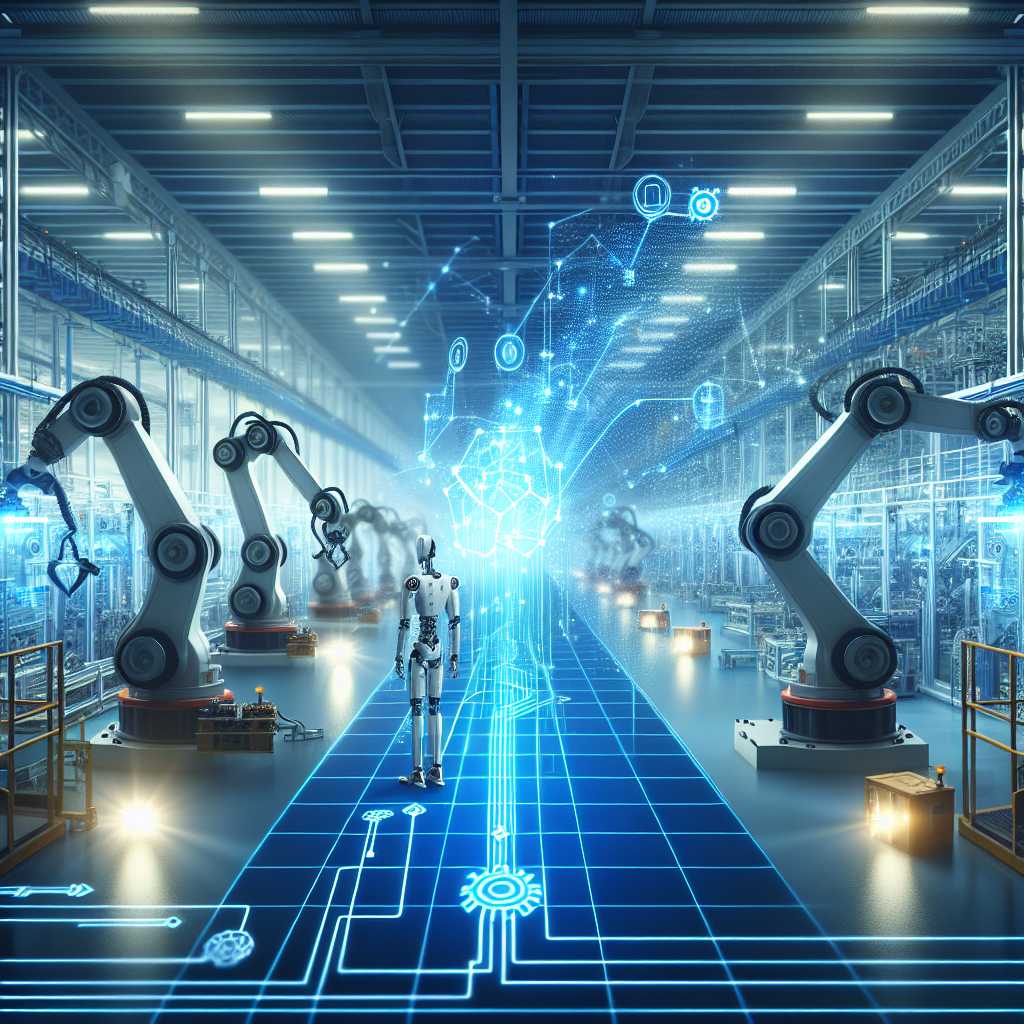Introduction
In recent years, the manufacturing industry has been undergoing a digital transformation, driven largely by advancements in artificial intelligence (AI) technology. AI has the potential to revolutionize the way manufacturers operate, from streamlining production processes to enhancing product quality and customer satisfaction. In this article, we will explore the role of AI in the digital transformation of manufacturing and its impact on the industry as a whole.
The Role of AI in Manufacturing
AI technology is being increasingly integrated into manufacturing processes to improve efficiency, reduce costs, and enhance productivity. Here are some of the key ways in which AI is transforming the manufacturing industry:
1. Predictive Maintenance: One of the most significant applications of AI in manufacturing is predictive maintenance. By analyzing data from sensors and other sources, AI algorithms can predict when equipment is likely to fail and schedule maintenance before a breakdown occurs. This can help manufacturers avoid costly downtime and improve overall equipment effectiveness.
2. Quality Control: AI-powered systems can analyze images and data in real-time to detect defects and anomalies in the manufacturing process. This allows manufacturers to identify and address quality issues before they impact production, leading to higher-quality products and increased customer satisfaction.
3. Supply Chain Optimization: AI can be used to optimize supply chain operations by predicting demand, identifying bottlenecks, and optimizing inventory levels. This can help manufacturers reduce costs, improve delivery times, and enhance overall supply chain efficiency.
4. Production Planning: AI algorithms can analyze historical data and real-time information to optimize production schedules, minimize waste, and maximize throughput. This can help manufacturers improve efficiency and meet customer demand more effectively.
5. Product Design: AI can be used to optimize product design by analyzing customer feedback, market trends, and other data sources. This can help manufacturers create products that better meet customer needs and preferences, leading to increased sales and market share.
6. Worker Safety: AI-powered systems can monitor worker behavior and environmental conditions to identify potential safety hazards and prevent accidents. This can help manufacturers create a safer work environment and reduce the risk of injuries.
7. Smart Manufacturing: AI technologies such as Internet of Things (IoT) devices and robotics are enabling the development of smart manufacturing systems that can automate and optimize production processes. This can help manufacturers improve efficiency, reduce costs, and enhance overall competitiveness.
FAQs
Q: What are the key benefits of using AI in manufacturing?
A: Some of the key benefits of using AI in manufacturing include improved efficiency, reduced costs, enhanced productivity, higher-quality products, and increased customer satisfaction.
Q: How can manufacturers get started with implementing AI in their operations?
A: Manufacturers can start by identifying areas of their operations that could benefit from AI technology, such as predictive maintenance, quality control, supply chain optimization, production planning, product design, and worker safety. They can then work with AI vendors or consultants to develop and implement AI solutions tailored to their specific needs.
Q: What are some of the challenges of implementing AI in manufacturing?
A: Some of the challenges of implementing AI in manufacturing include data quality and availability, integration with existing systems, cybersecurity risks, workforce training, and regulatory compliance. Manufacturers need to address these challenges in order to successfully leverage AI technology in their operations.
Q: How can AI help manufacturers improve sustainability?
A: AI can help manufacturers improve sustainability by optimizing energy consumption, reducing waste, and minimizing environmental impact. By analyzing data and optimizing processes, AI can help manufacturers operate in a more environmentally friendly and sustainable manner.
Q: What are some examples of successful AI implementations in manufacturing?
A: Some examples of successful AI implementations in manufacturing include predictive maintenance systems that have reduced downtime and maintenance costs, quality control systems that have improved product quality and customer satisfaction, and supply chain optimization systems that have reduced costs and improved efficiency.
Conclusion
AI technology is playing a transformative role in the digital transformation of the manufacturing industry. By leveraging AI-powered systems and algorithms, manufacturers can improve efficiency, reduce costs, enhance productivity, and drive innovation. As AI continues to evolve and mature, its impact on the manufacturing industry is expected to grow even further, leading to a new era of smart, connected, and efficient manufacturing operations. Manufacturers that embrace AI technology and integrate it into their operations will be well-positioned to succeed in the digital age.

